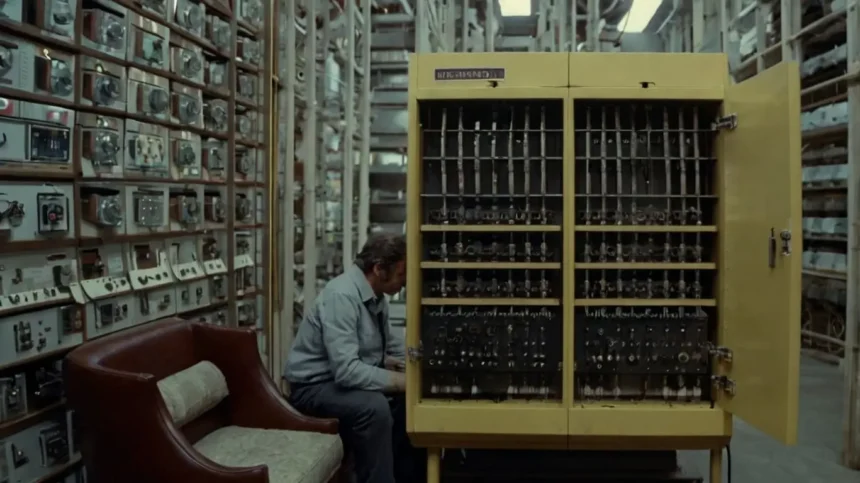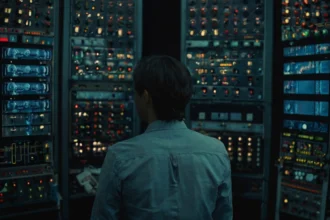Memory Vaults: Imagine a world where memories, those intangible markers of experience and identity, are treated like data on a hard drive. You could back them up, delete painful ones, share them with others, or even purchase curated memories. This futuristic vision, once confined to science fiction, is steadily advancing toward reality, thanks to breakthroughs in neuroscience and brain-computer interfaces (BCIs). However, alongside the promise of limitless memory, questions about privacy, ethics, and the very authenticity of our lived experiences loom large.
In the age of digital memories, the true challenge is not storing our thoughts, but safeguarding the essence of who we are.
Dr. Eleanor Hart, Cognitive Neuroscientist and Futurist
The Science of Memory Encoding and Storage
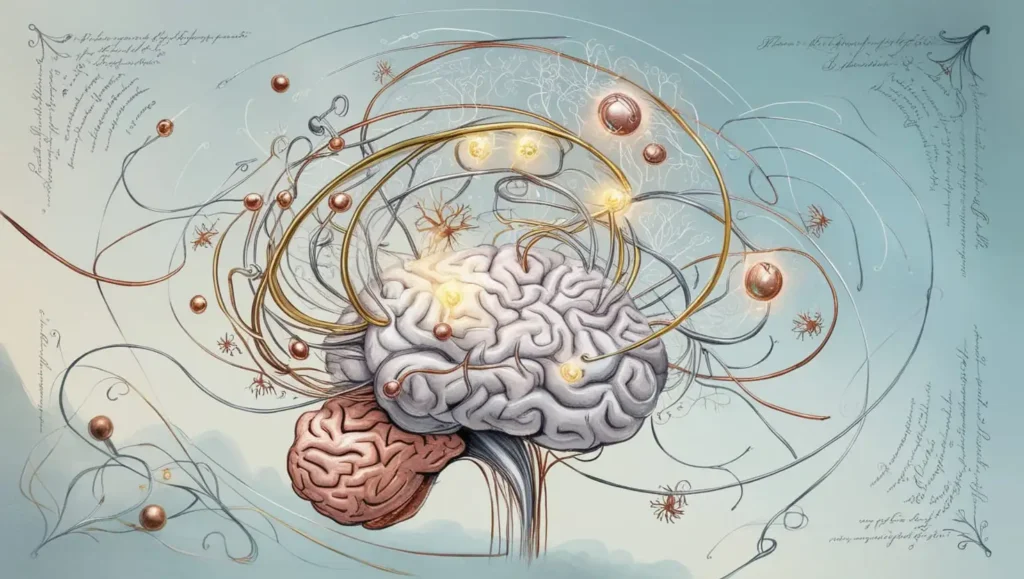
At its core, memory is the brain’s ability to encode, store, and retrieve information. This process relies on a network of neurons and synapses, particularly in the hippocampus and prefrontal cortex. Each memory begins as a neural pattern, strengthened over time by repetition and emotional significance. But what if this natural process could be replicated, or even enhanced, by technology?
Breakthroughs in Brain-Computer Interfaces
Brain-computer interfaces have emerged as a powerful tool to bridge the gap between human cognition and digital technology. BCIs are designed to decode brain signals, often through implanted electrodes, and interpret these patterns in ways machines can understand. While BCIs have primarily been explored for restoring mobility in paralyzed individuals or aiding those with neurodegenerative diseases, researchers are now pushing the boundaries to tackle memory.
Memory Implants: A Technological Revolution
Memory implants are a specific type of BCI designed to encode and retrieve memories directly from the brain. Researchers at institutions like DARPA (Defense Advanced Research Projects Agency) and companies like Neuralink are working on systems that can enhance memory retention or restore lost memories in patients with traumatic brain injuries or Alzheimer’s disease.
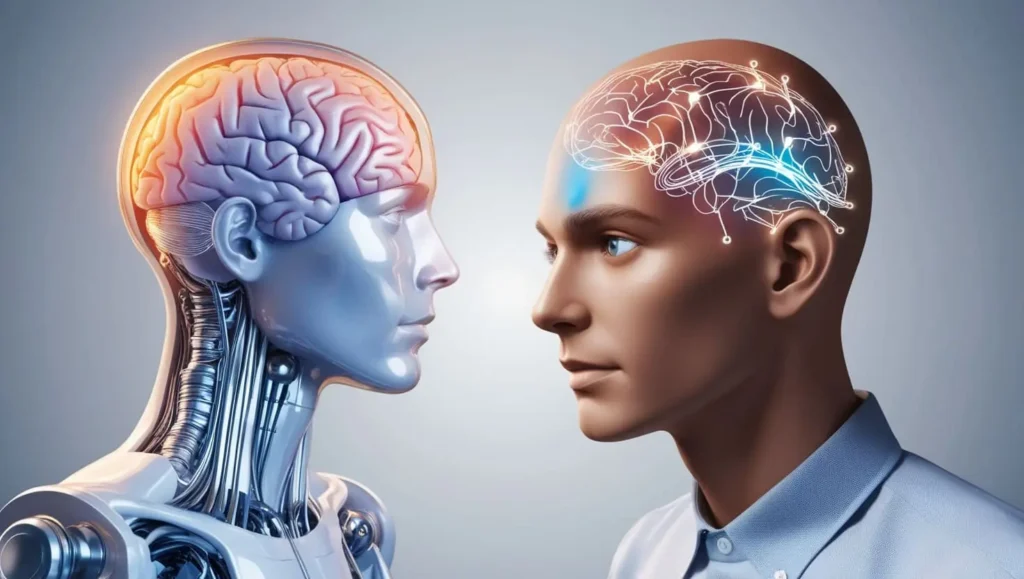
One notable example is the work by Dr. Theodore Berger, a biomedical engineer at the University of Southern California. His team developed a hippocampal prosthesis capable of mimicking the brain’s ability to encode memories. By stimulating specific neurons with electrical signals, they managed to improve memory retention in animal models and human participants. This research not only promises a solution for memory-related diseases but also lays the groundwork for more speculative applications.
The Sci-Fi Angle: Memory as Data
Imagine owning a “memory vault,” a personalized device or cloud platform that stores your thoughts, experiences, and emotions. With the right permissions, you could share these memories with others or retrieve them years later with perfect clarity. However, this utopian vision is accompanied by a dystopian edge.
A memory vault secures our past but risks selling our soul.”
Dr. Marcus Lin, Neuroethicist
Applications and Implications
- Backup and Restoration
Memory loss due to injury, aging, or diseases like dementia could become a thing of the past. Individuals might regularly upload their memories to secure servers, ensuring that no life experience is ever lost. - Selective Deletion
Painful memories, such as those associated with trauma or grief, could be erased entirely. While this might provide relief, it raises questions about the role of adversity in shaping personal growth and identity. - Memory Sharing and Transfer
Imagine transferring a memory of your wedding day to a loved one, allowing them to relive the moment as if it were their own. Alternatively, businesses might create curated experiences—”download a vacation to Bali”—blurring the line between reality and illusion. - Commercialization and Exploitation
In a world where memories are commodities, corporations could monetize experiences or even implant fabricated memories as a form of advertising. The concept of authenticity would face an existential crisis.
Ethical and Privacy Concerns
The ability to manipulate and store memories brings a host of ethical dilemmas to the forefront. Chief among these is privacy. Memories are the essence of individuality; tampering with them, whether by corporations, governments, or hackers, could have devastating consequences.
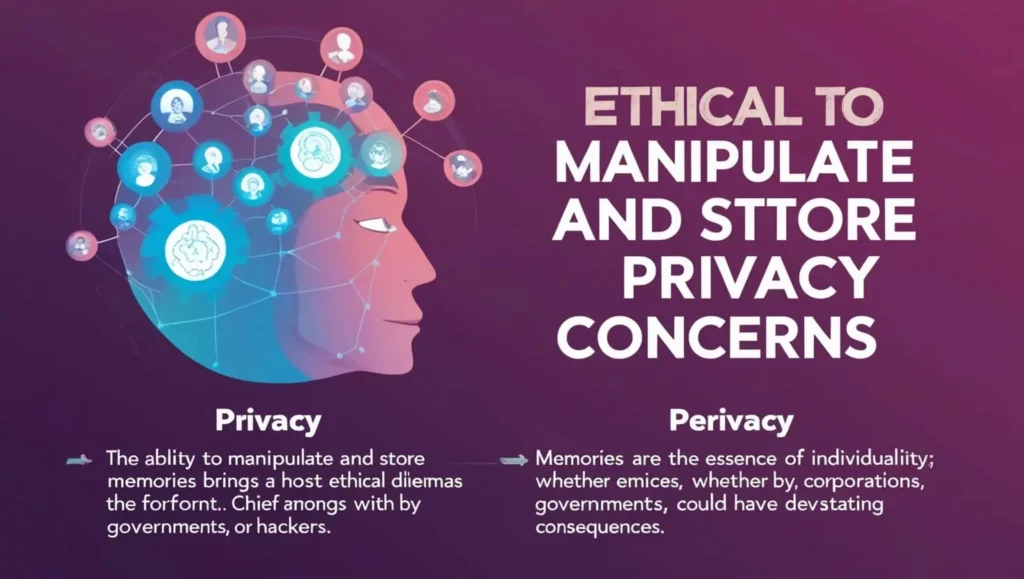
Privacy Risks
Memory vaults would be prime targets for cyberattacks. Hackers could steal or alter memories, creating profound psychological harm. Governments might exploit the technology for surveillance or interrogation, compelling individuals to share memories without consent.
Authenticity vs. Manipulation
If memories can be edited or fabricated, how do we distinguish between real experiences and artificial ones? The implications for personal identity are staggering. Would an individual’s sense of self remain intact if their memories could be manipulated at will?
The Inequality Gap
Like many emerging technologies, memory-enhancing implants could exacerbate societal inequalities. Only the wealthy might afford advanced memory storage or curated experiences, leading to cognitive and emotional disparities between socioeconomic classes.
Neuroscience Meets Philosophy
The possibility of digitized memories forces us to confront profound philosophical questions:
- What Defines Reality?
If our memories can be fabricated, does reality itself lose meaning? The human experience, anchored in subjective memory, might become a mosaic of curated illusions. - The Role of Suffering
Painful memories, though unpleasant, play a critical role in emotional growth and resilience. Erasing these experiences might render individuals less capable of handling future challenges. - Free Will and Autonomy
If memories can be implanted or deleted without consent, individuals could lose agency over their minds. This raises concerns about authoritarian misuse and the erosion of personal freedom.
The Current State of Research
While the idea of memory vaults might sound futuristic, incremental steps toward this goal are already underway. Neuroscientists are refining methods to record and decode neural activity with increasing precision. Current research focuses on:
- Neural Mapping: Identifying the specific patterns associated with memory encoding and retrieval.
- Prosthetics and Restoration: Developing implants that restore memory in individuals with damaged brain areas.
- AI Integration: Using artificial intelligence to analyze and replicate neural activity, creating seamless interfaces between brain and machine.
Despite these advancements, significant hurdles remain. The brain’s complexity makes precise memory manipulation extraordinarily challenging. Additionally, ethical frameworks for the responsible use of such technologies are still in their infancy.
A Day in the Life: A Speculative Scenario
Let’s take a closer look at what a world of memory vaults might look like:
You wake up to a notification on your neural interface. “Yesterday’s memories have been uploaded. Would you like to review or share?” Scrolling through, you delete an embarrassing moment from a work meeting but save a cherished conversation with a friend. Later, you purchase a “memory upgrade,” downloading an experience package labeled “Climbing Mount Everest—Advanced Sensory Edition.” That evening, a friend sends you a memory of their child’s birthday party, which you relive with vivid clarity.
This vision is equal parts tantalizing and terrifying. While the convenience and possibilities are endless, the cost to authenticity and personal privacy could redefine what it means to be human.
Preparing for the Memory Revolution
As memory-enhancing technologies advance, society must address critical questions to ensure they are used responsibly:
- Developing Ethical Guidelines
Researchers, ethicists, and policymakers need to collaborate on frameworks that prioritize consent, privacy, and equitable access. - Building Robust Security
Memory vaults must be designed with advanced encryption and fail-safes to protect against unauthorized access and tampering. - Public Awareness and Debate
Open discussions about the benefits and risks of memory manipulation can help create informed policies and foster public trust. - Balancing Progress with Humanity
As we embrace technology, we must also consider its impact on the human experience. Preserving the authenticity of life, even in an age of artificial memories, should remain a priority.
Breaking Down the Barriers
The concept of memory vaults—once relegated to the realm of science fiction—is rapidly becoming a plausible reality. From restoring memories lost to disease to sharing curated experiences, the potential applications are as exciting as they are complex. Yet, with great power comes great responsibility. The ethical and philosophical challenges surrounding privacy, authenticity, and identity must be addressed to ensure that memory-enhancing technologies enhance our lives rather than erode our humanity.
As we stand on the brink of this revolution, one question remains: Will we use this technology to unlock the depths of human potential, or will it become another tool for exploitation in an increasingly digital world? The answer lies in the choices we make today, as we transform the fragile, fleeting nature of memory into something enduring and extraordinary.
Additional Resources
Here are some additional links for your article on quantum cryptography and its impact on cybersecurity, offering a variety of perspectives and insights:
- Capgemini: Post-Quantum Cryptography Developments
This article explores how advancements in quantum computing are reshaping cybersecurity, particularly through efforts like post-quantum encryption algorithms and proactive government measures.
Capgeminips://www.capgemini.com/insights/expert-perspectives/how-post-quantum-cryptography-is-reshaping-cybersecurity-in-2024/). - SecurityWeek: Preparing for Quantum Cybersecurity Threats
Discusses federal actions such as the Quantum Computing Cybersecurity Preparedness Act and NIST’s efforts to develop SecurityWeekgorithms, addressing the urgent need to prepare before quantum computing becomes mainstream.
Read more here. - *IBM: Quantum-Safe Cryptography for Cloud SecurityIBM – United States its work on quantum-safe algorithms, such as the CRYSTALS suite, and emphasizes early adoption of security measures to protect against quantum threats to encryption.
Learn more here. - Nature: Quantum Hacking and Encryption Readiness
Explores the vulnerabilities quantum computing introduces to traditional cryptography and the readiness of quantum-safe encryption solutions to counteract these risks.
[Read more Capgeminipgemini.com/insights/expert-perspectives/how-post-quantum-cryptography-is-reshaping-cybersecurity-in-2024/). - MIT Technology Review: Advances in Quantum Encryption
Offers insights into the challenges and progress in quantum cryptography, including the development of unbreakable encryption techniques and their practical applications in a post-quantum era.
Read more here.
These resources provide a well-rounded view of how quantum cryptography could revolutionize cybersecurity, from cutting-edge research to the implications of emerging technologies.
Must Read : Mirage in the Digital Desert


